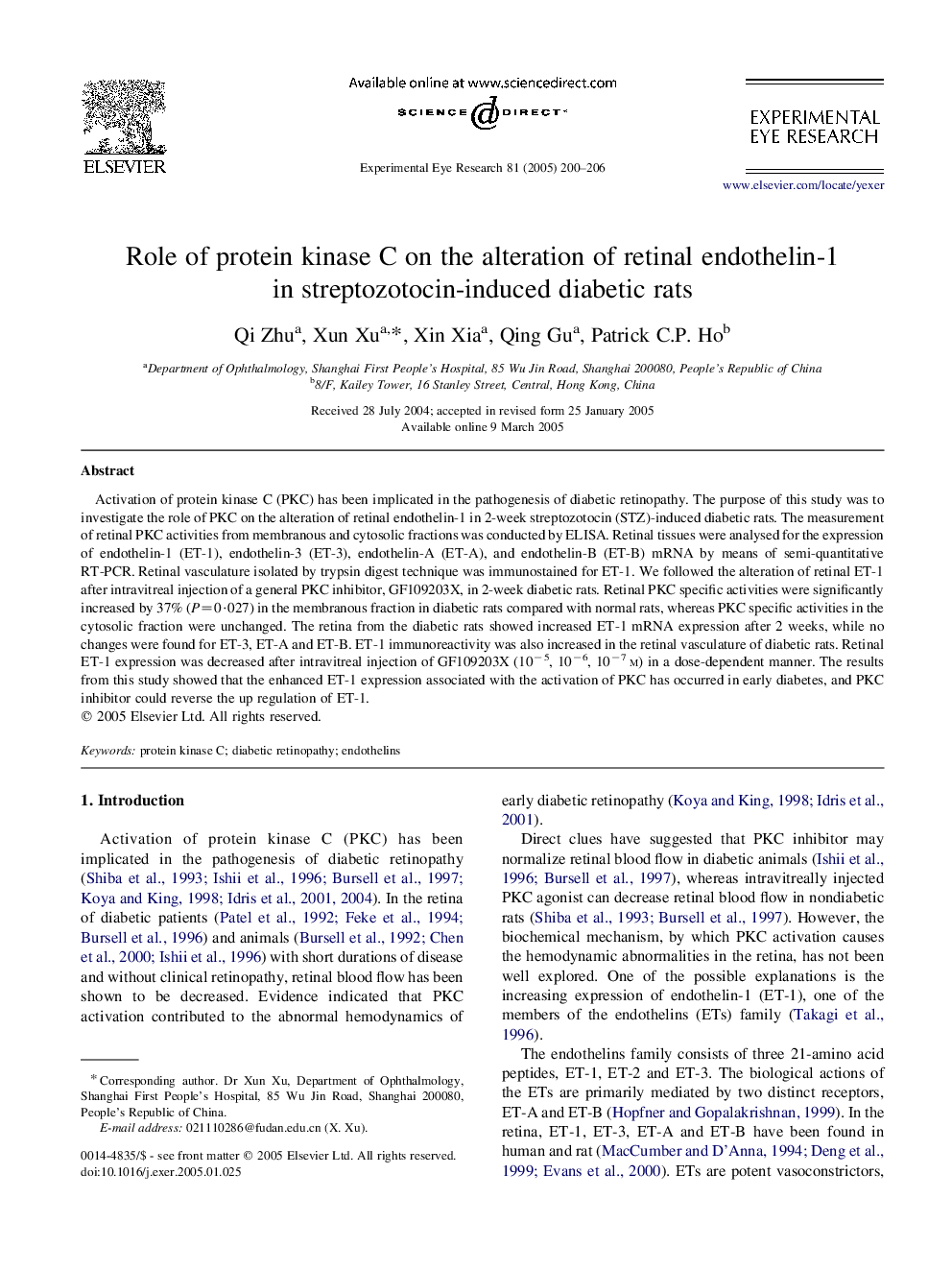| Article ID | Journal | Published Year | Pages | File Type |
|---|---|---|---|---|
| 9341910 | Experimental Eye Research | 2005 | 7 Pages |
Abstract
Activation of protein kinase C (PKC) has been implicated in the pathogenesis of diabetic retinopathy. The purpose of this study was to investigate the role of PKC on the alteration of retinal endothelin-1 in 2-week streptozotocin (STZ)-induced diabetic rats. The measurement of retinal PKC activities from membranous and cytosolic fractions was conducted by ELISA. Retinal tissues were analysed for the expression of endothelin-1 (ET-1), endothelin-3 (ET-3), endothelin-A (ET-A), and endothelin-B (ET-B) mRNA by means of semi-quantitative RT-PCR. Retinal vasculature isolated by trypsin digest technique was immunostained for ET-1. We followed the alteration of retinal ET-1 after intravitreal injection of a general PKC inhibitor, GF109203X, in 2-week diabetic rats. Retinal PKC specific activities were significantly increased by 37% (P=0·027) in the membranous fraction in diabetic rats compared with normal rats, whereas PKC specific activities in the cytosolic fraction were unchanged. The retina from the diabetic rats showed increased ET-1 mRNA expression after 2 weeks, while no changes were found for ET-3, ET-A and ET-B. ET-1 immunoreactivity was also increased in the retinal vasculature of diabetic rats. Retinal ET-1 expression was decreased after intravitreal injection of GF109203X (10â5, 10â6, 10â7 m) in a dose-dependent manner. The results from this study showed that the enhanced ET-1 expression associated with the activation of PKC has occurred in early diabetes, and PKC inhibitor could reverse the up regulation of ET-1.
Related Topics
Life Sciences
Immunology and Microbiology
Immunology and Microbiology (General)
Authors
Qi Zhu, Xun Xu, Xin Xia, Qing Gu, Patrick C.P. Ho,
